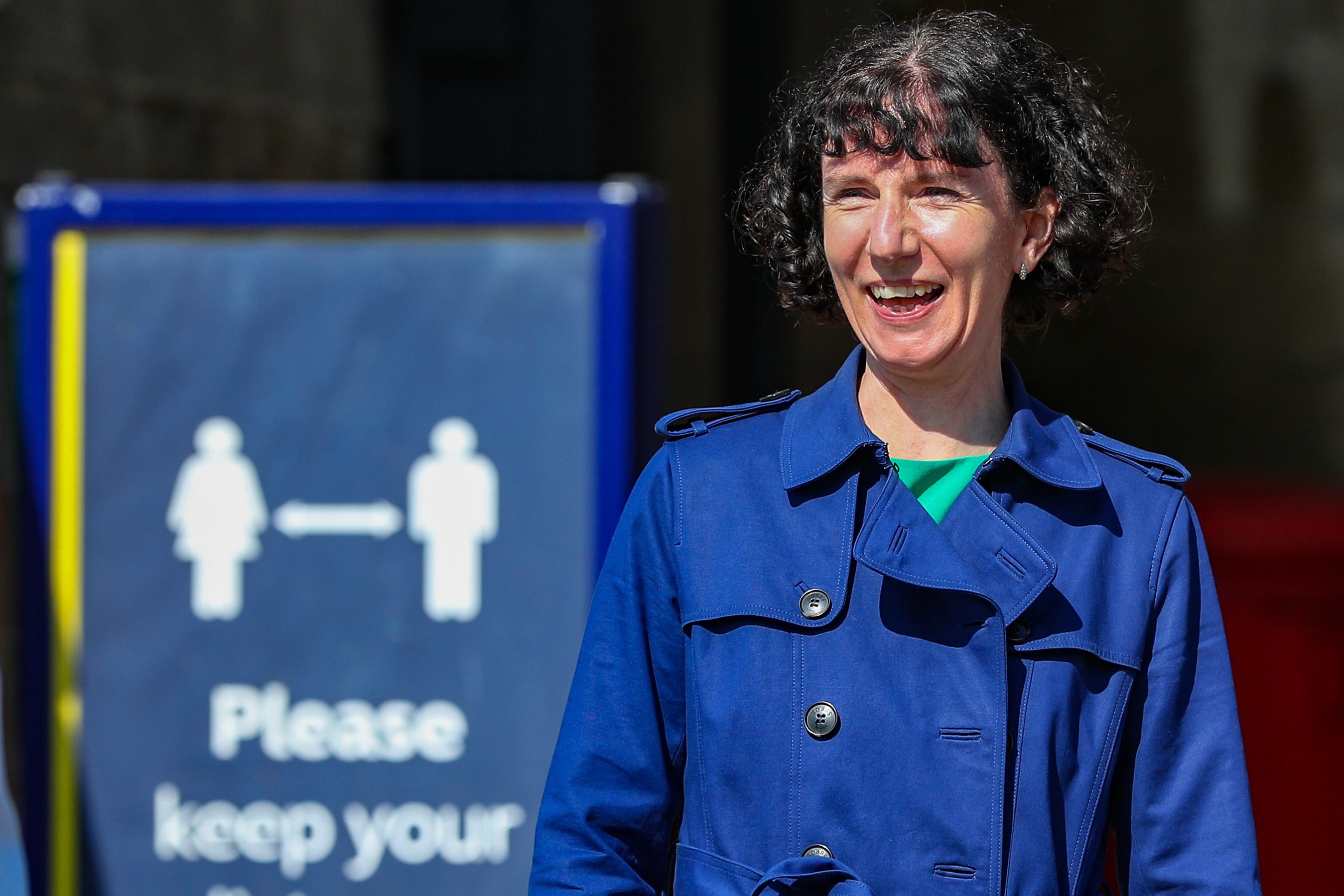‘National conversation’ needed for mid-life women, says Labour MP Dodds
Anneliese Dodds addressed the Women’s Institute on Saturday.

Your support helps us to tell the story
From reproductive rights to climate change to Big Tech, The Independent is on the ground when the story is developing. Whether it's investigating the financials of Elon Musk's pro-Trump PAC or producing our latest documentary, 'The A Word', which shines a light on the American women fighting for reproductive rights, we know how important it is to parse out the facts from the messaging.
At such a critical moment in US history, we need reporters on the ground. Your donation allows us to keep sending journalists to speak to both sides of the story.
The Independent is trusted by Americans across the entire political spectrum. And unlike many other quality news outlets, we choose not to lock Americans out of our reporting and analysis with paywalls. We believe quality journalism should be available to everyone, paid for by those who can afford it.
Your support makes all the difference.The UK needs a “national conversation” about the pressures facing middle-aged and mid-life women, shadow women and equalities secretary Anneliese Dodds has said.
Ms Dodds, who is also Labour chairwoman, used the speech at the Women’s Institute in London to call for greater discussion of the pressures faced by women aged 45 to 64 in work, health and childcare.
The last time a major Labour politician turned up to give a keynote speech at a national Women’s Institute event proceedings did not go well.
Addressing the group’s national conference in Wembley in 2000, Tony Blair drew heckles and had his speech interrupted by slow handclapping as the audience showed its displeasure at his decision to use the forum for a political speech.
The power of coming together, of conversation, of collective endeavour within a local community should never be underestimated
Ms Dodds is not believed to have faced the same problems as she joined members to call for action against violence against women and stressed the need for more public discussion of the menopause.
The Labour frontbencher made a veiled reference to the Blair row as she opened her address, joking: “Of course, not all politicians have struck quite the right note when addressing the Women’s Institute, so I only hope that the warm welcome continues all the way through my speech.”
Ahead of the speech, Labour pointed to an analysis of data showing that 185,000 more women aged between 50 and 64 have been economically inactive since the beginning of the pandemic.
Labour says the economy could get a £7 billion boost if employment rates among that age group returned to pre-pandemic levels.
Ms Dodds told members: “The power of coming together, of conversation, of collective endeavour within a local community should never be underestimated.
“Whether those conversations happen over cross-stitch or in a committee meeting, it is that network of friendship and community that brings real change to places and to people.
“Like all of you, I am appalled by the growing epidemic of violence against women and girls.
“I know that many of us will be reflecting today on the two-year anniversary of the abduction and murder of Sarah Everard. It is unacceptable that so many women are still living in fear.”
She said that while Labour and the Women’s Institute come from different traditions, “there are times when we can work together, and not only in our shared desire to end violence against women and girls”.
Ms Dodds, calling for a national conversation for women in their 40s, 50s and 60s, said: “This group of women doesn’t get talked about very much, even among ourselves.
“We don’t spend all our waking hours talking about the pressures we’re facing – to be honest, we haven’t got enough time! The fact is that mid-life women do a lot, but we don’t dwell on ourselves.
“But women of this age are facing significant pressures.
“Today I want to issue a call to action, starting from this room, but a call that I hope will reach far beyond it. This is a speech about power and about potential. Our power is enormous, our potential untapped.”
Melissa Green, chief executive of the National Federation of Women’s Institutes, said many women are facing “an impossible balancing act” and it was “time to shine a spotlight” on the issues they face.
“Women are constantly juggling their careers and the demanding task of caring for their own children, grandchildren, and too often their own parents amid a crumbling social care system,” she said.
“These are women at the very heart of their families, communities and civic life across the country yet their experiences are all too often ignored by society and politics and their contributions taken for granted.”
Subscribe to Independent Premium to bookmark this article
Want to bookmark your favourite articles and stories to read or reference later? Start your Independent Premium subscription today.